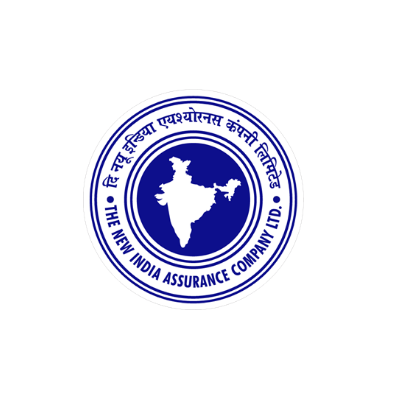WHAT IS INTERNATIONAL HEALTH INSURANCE
Health emergencies are unpredictable, especially in today’s fast-paced world where everyone is striving to earn more and achieve success. The constant struggles and relentless race to the top can take a significant toll on an individual’s health.
This is particularly true for frequent overseas travelers, who face unique health risks and challenges. For those who frequently find themselves crossing borders, insuring their health with International health insurance is a smart move, providing them with crucial financial coverage in case of unforeseen medical issues abroad.
Worldwide health insurance policy not only safeguards your health but also ensures that medical expenses do not derail your financial plans or travel goals.
In this post, we’ll explore what global health insurance means, how it works, and how to choose the best plan tailored to your needs, ensuring that you stay protected no matter where life takes you.
What is International Health Insurance?
International health insurance is a kind of health insurance policy for travel that offers coverage for medical emergencies while traveling or staying abroad. It provides protection against unforeseen medical emergencies and financial security for hospitalization costs or accidents.
It also allows policyholders to avail of any healthcare services they may wish for during their travel. Basically, a worldwide health insurance plan helps the policyholder cover their medical expenses and ensure their safety while on a trip. International health insurance can be bought for any travel purpose, vacation, or business.
How International Health Insurance Works?
Coverage Understanding
International health insurance offers medical coverage to individuals who are living, working or traveling outside their home country. Depending on the selected plan, it ensures access to a broad range of medical services like hospitalization, emergency care, routine checkup, and even wellness programs.
Policy Selection
Policy buyers can choose different plans or even customize plans according to level of coverage needs. Buyer can select different deductibles and premiums levels based on their budget and need.
Claim Process
The Claim process for the global health insurance is simple, you can opt for cashless treatment if your healthcare provider is networked with your insurance company. For out of network health providers you may need to pay upfront and then file a claim for reimbursement.
Coverage for Pre-Existing Conditions
Coverage for pre-existing conditions varies. Some policies may cover them after a health insurance waiting period, while others may exclude them entirely. It’s essential to understand the terms regarding pre-existing conditions when selecting a plan.
International Health Policy
Normally international health insurance policies are meant to renew annually. Many international health policies are portable allowing you to maintain coverage even if you move to a different country.
Support
Most international health insurance providers offer 24/7 customer support and emergency assistance to help you access medical care and navigate the local healthcare system, no matter where you are.
What are Inclusions of International Health Insurance
-
Coverage for inpatient care, including surgeries, room charges, and associated medical services.
-
Some global health policies include routine check-ups, vaccinations, and screenings.
-
Coverage for emergency care, including emergency room visits, ambulance services, and treatment for acute illnesses or injuries.
-
Covers prenatal, delivery, and postnatal care, though this may have specific terms or waiting periods.
-
Coverage for doctor visits, diagnostic tests, and minor procedures that don’t require hospitalization.
-
Some plans offer coverage for wellness services such as health check-ups, alternative therapies, or fitness programs.
What are Exclusions of International Health Insurance
-
Many international health policies exclude coverage for pre-existing conditions, though some may offer coverage after a waiting period.
-
Long-term management of chronic conditions like diabetes or hypertension may not be fully covered or might have specific limitations.
-
New or unproven treatments or medications that are not widely accepted may be excluded.
-
Coverage for maternity care might be limited or excluded, especially for pregnancies occurring shortly after policy inception.
-
Treatment for substance abuse or addiction may be excluded or limited.
-
Injuries or conditions resulting from extreme sports or high-risk activities may be excluded.
-
Insurance coverage usually does not extend to non-medical services such as travel or accommodation expenses not related to medical treatment.
How to Buy International Health Insurance?
International health insurance can be easily purchased online from your choice of healthcare insurance provider. All you need to do is;
- Go to the official website of the insurance provider and check for the international health insurance section.
- Compare the different plans they are offering and choose the plan that best suits you depending on your age, time of travel and health condition.
- Submit the duly filled application form online with a copy of relevant documents and your travel details like travel destination, travel dates and purpose of travel.
- Make sure to read the policy terms and conditions before you pay the premium.
- Once your payment is processed, the insurer will mail the policy papers to your registered email address.
You can also purchase international health insurance offline by meeting the insurance company or through an agent.
How to Claim International Health Insurance
-
In case of an emergency while in a foreign country, firstly inform your insurer or the third-party assistance provider about your medical situation.
-
Then, get the medical treatment coverage as offered in your plan. Arrange for relevant documents as needed for claim settlement by the insurer.
-
Submit all the documents either online or offline via post as feasible. Post verification, the claims team of the insurance company shall settle the claim. There is the option of cashless claims as well. In case of cashless claims, the insurer will clear the bill directly with their network hospital abroad once your treatment is over.
Remember, in case your plan has expired while on a foreign trip, you can quickly get it renewed online by visiting the insurer's website and following simple plan renewal instructions.
FAQs on International Health Insurance
Who Should Buy International Health Insurance?
International health insurance is ideal for expatriates, long-term travelers, digital nomads, international students, and individuals working abroad.
What is Short Term International Health Insurance?
Short term global health policy offers temporary medical coverage for policy holders traveling or living overseas for a limited period of time.
What is Emergency Evacuation in International Health Insurance?
Emergency evacuation coverage provides transport to the nearest appropriate medical facility if local care is insufficient. It may include airlifting to a different country or city for necessary treatment or evacuation in case of a serious health crisis.
Can I Use My International Health Insurance Multiple Times?
Yes, most international health insurance policies provide insurance coverage in multiple countries. But it is advisable to check terms and conditions of any geographical limitations on insurance coverage.
Do I Need to Get a Health Check-Up Done Before Buying International Health Policy?
No, a medical health check-up is not needed while traveling overseas unless you are of age 65 years or above.




































